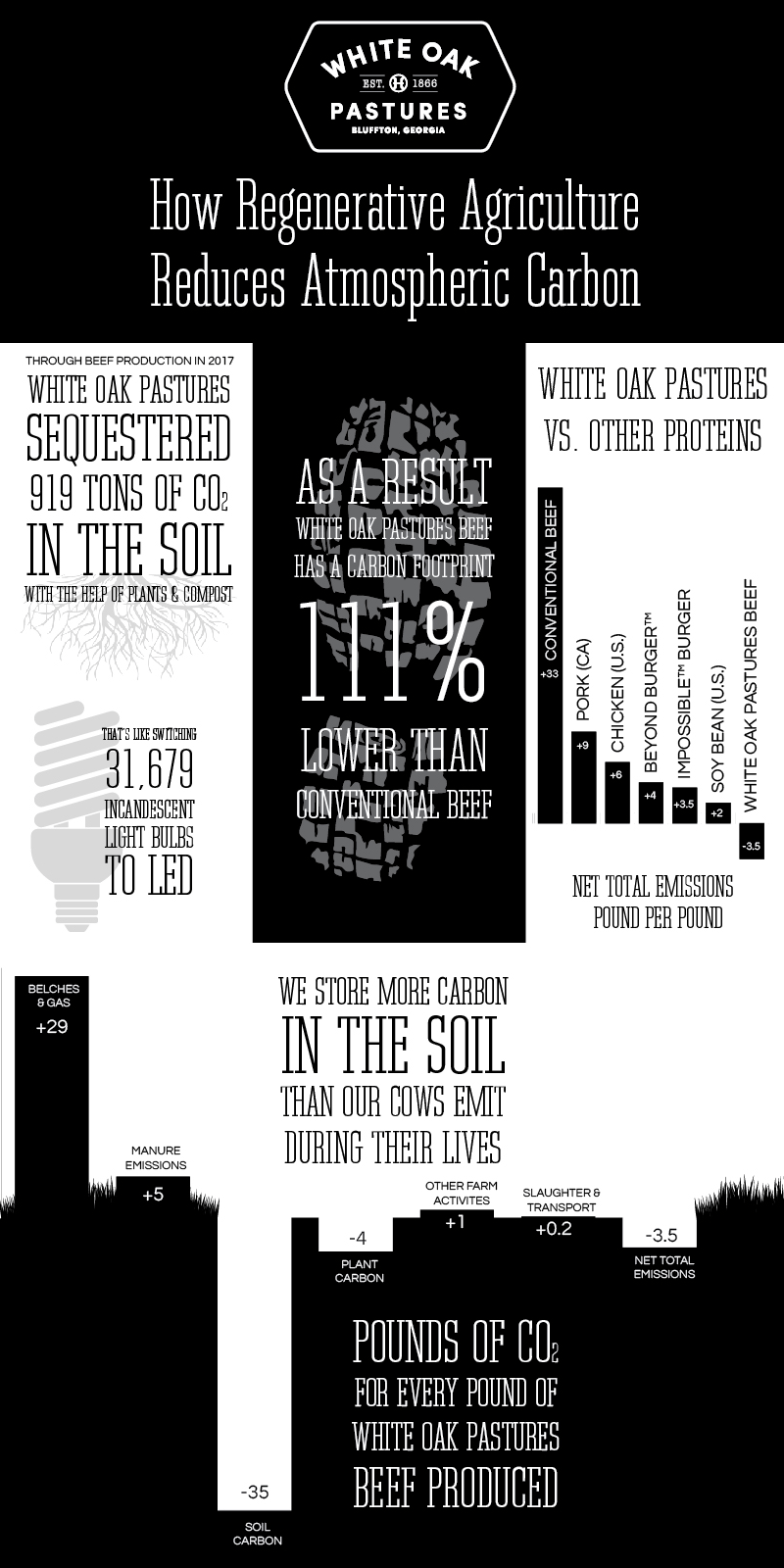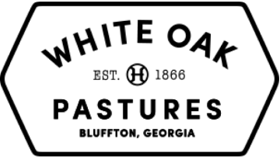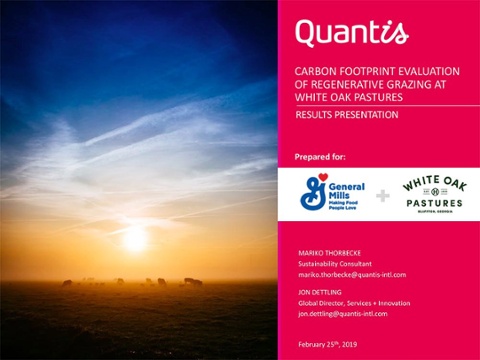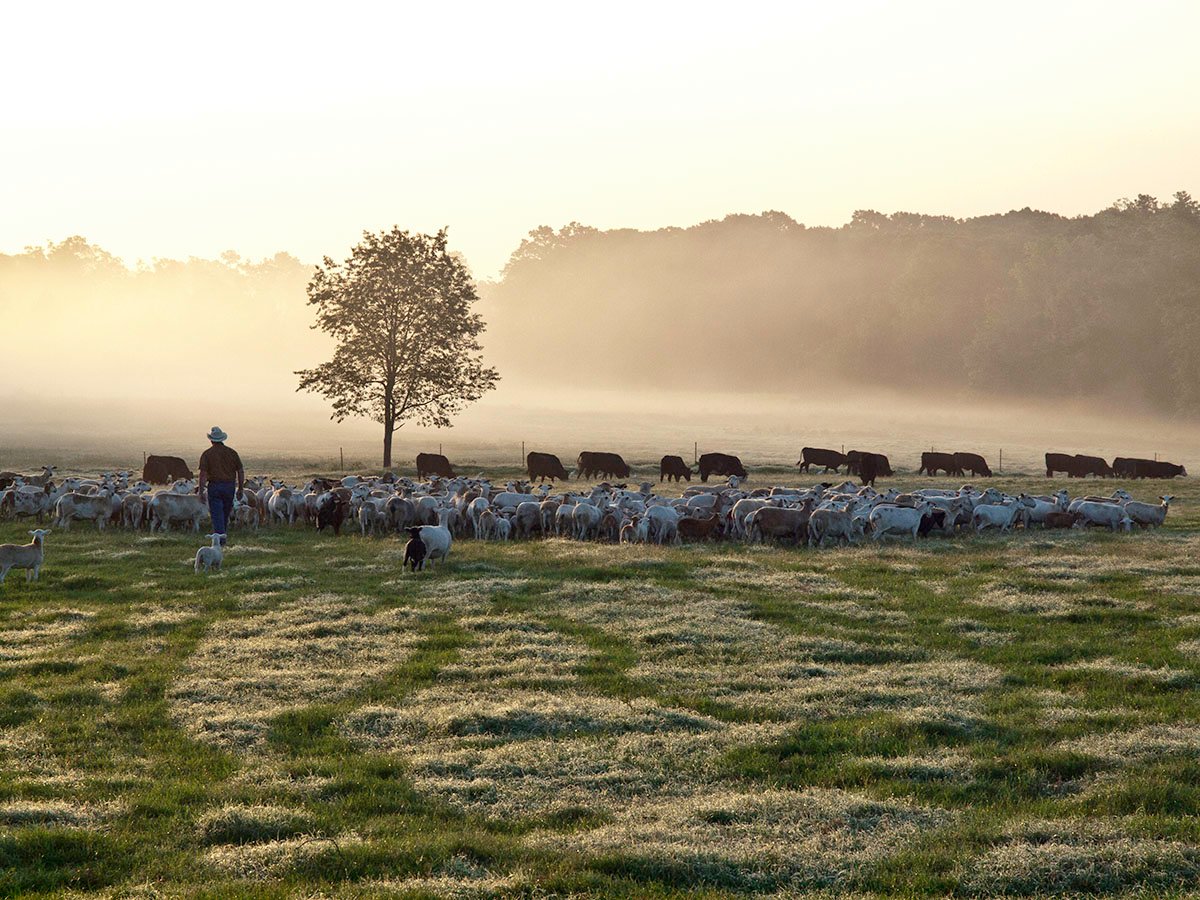
We know that many of our customers and supporters are aware that carbon emissions from industrialized beef production contribute a significant amount to man-made climate change. The Food and Agriculture Organization (FAO) of the United Nations has estimated that livestock is responsible for at least 14.5% of greenhouse gases being released worldwide. With numbers like that, conventional wisdom holds that a diet containing meat isn't compatible with climate change activism.
With our unconventional operation, we weren't convinced that was the full story; but, then again, we're not scientists. Luckily, there are some scientists out there interested in this question as well.
We are pleased to announce the release of a Life Cycle Assessment (LCA) study, conducted by a third-party sustainability science firm, confirming that White Oak Pastures is storing more carbon in its soil than its pasture-raised cows emit during their lifetime. White Oak Pastures offsets at least 100% of our grassfed beef carbon emissions and as much as 85% of the farm's total carbon emissions. This flies in the face of "conventional wisdom", showing that grassfed beef and holistic land and animal management can be tools to help reverse climate change.
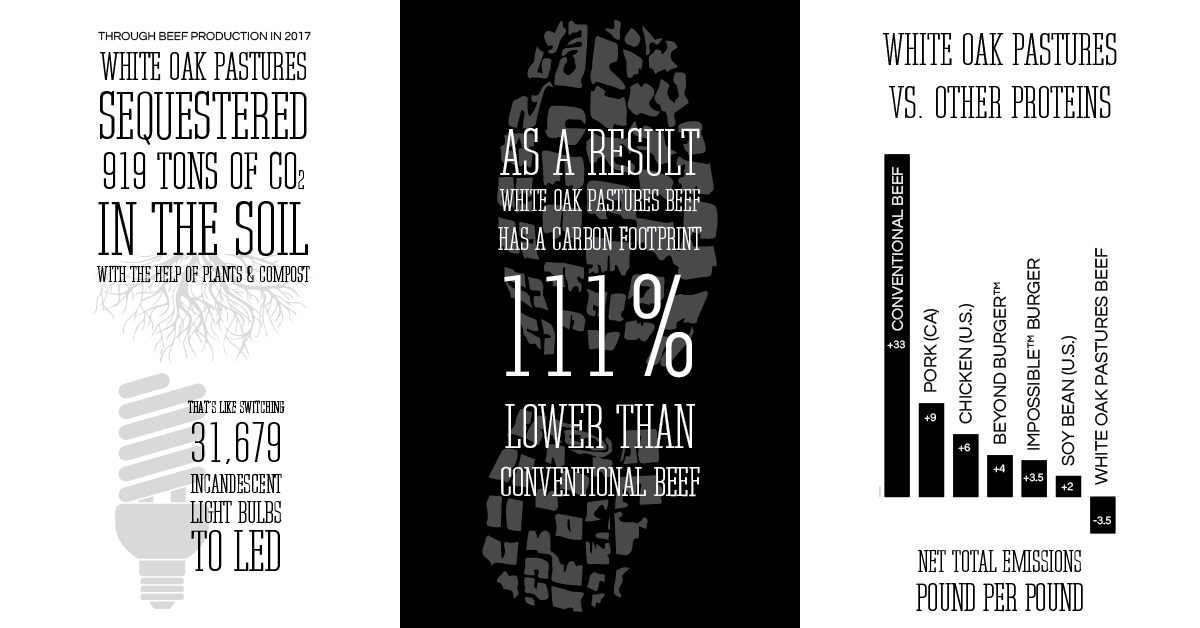
Quantis, one of the one of the world's most respected environmental research and design firms, conducted the LCA on beef raised by White Oak Pastures, to “account for the energy and environmental impacts of all stages of a product’s life cycle, such as [the] acquisition of raw materials, the production process, handling of waste byproducts, and more.” The LCA analyzed the greenhouse gas footprint of our farm, which included enteric emissions (belches and gas) from cattle, manure emissions, farm activities, slaughter and transport, and carbon sequestration through soil and plant matter.
Because White Oak Pastures has a history of acquiring and converting land to holistic practices, Quantis was able to study different pastures that have been under holistic management for a wide range of years (from 0, 1, 3, 5, 8, 13, all the way to 20 years). This allowed researchers to do soil sampling and model data from a number of different ecosystems in different stages of the regenerative journey.
The data that came from the LCA so astounded Quantis' research team at first that they called in other academics from other universities and institutes to confirm the methodology. The 2017 data showed that converting annual cropland to perennial pasture, under holistic and regenerative grazing practices, had the effect of storing more carbon in the soil than cows emit during their lives. In other words, our grassfed cattle sequester more carbon than they produce.
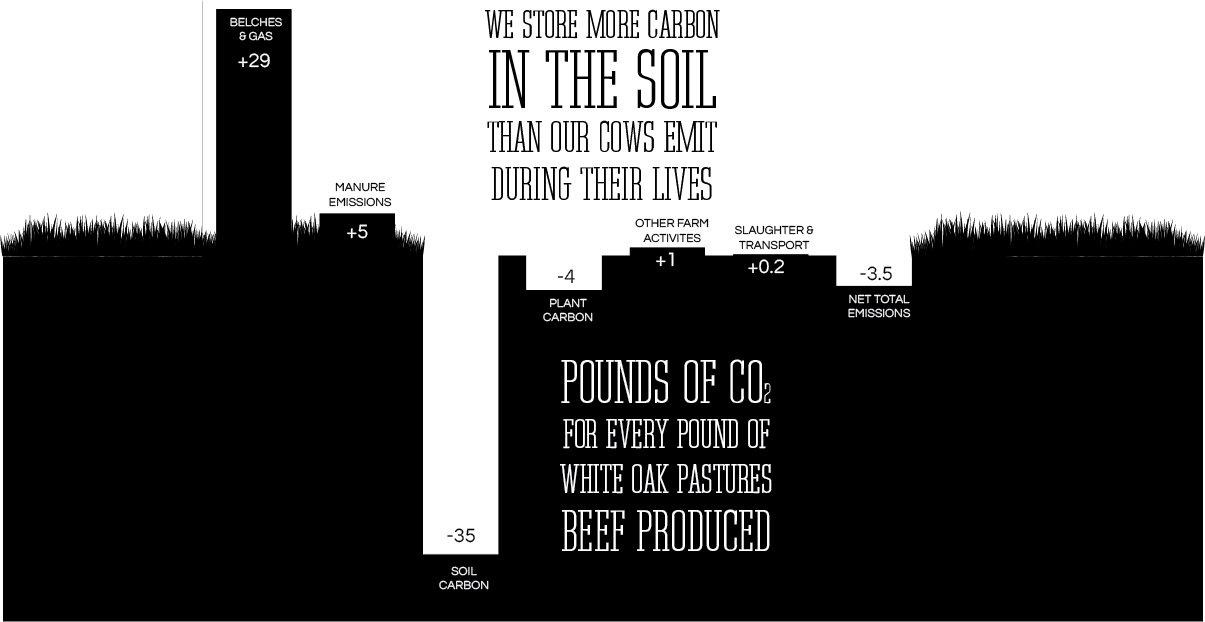
“Our farm is creating more in terms of organic matter in the soil and microbial biodiversity than it is depleting,” says Will Harris. “This shows that it is possible for humans to positively contribute to the environment through our food production system- using holistic management and planned grazing of livestock.”
We're proud to be part of this groundbreaking study and to add to the conversation around animal impact and climate change. We've always believed that the impact of treating pastures as complete ecosystems went beyond just producing good grassfed meat. With the results of the LCA study, we now have a better understanding of just how much holistic soil, life cycle, and animal management can impact the world we live in.
Read the full LCA study and learn more about our regenerative farm practices here:
INFOGRAPHIC: How Regenerative Agriculture Reduces Atmosperic Carbon
